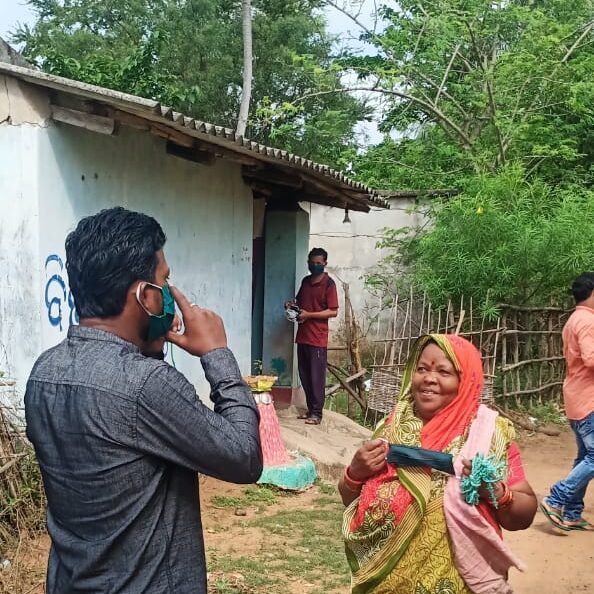Young people in India can help take the country out of its ongoing health and humanitarian crisis.
As the daily reports suggest, the most marginalised in society (daily wagers, migrant workers, hawkers, contractual and informal workers etc.) are disproportionately impacted because their livelihoods and incomes are lost as a result of the pandemic.
The Challenges
State of Public Health Care in India: The Indian government’s expenditure on health as a percentage of GDP still hovers around 1.5%, one of the lowest in the world. For around 52% of households in urban areas, and 44% of households in rural areas, the private sector is the main source of health care when they are sick, according to government data. It is insufficient to take on a pandemic like COVID-19.
Misinformation and Stigma: Stigma has further aggravated the problem. Misinformation and Stigmatisation has led many people running away from the quarantine centres / hospitals and people are not coming forward. The issue of stigmatization stems from fear, prejudice, divisiveness, sometimes from racism, and lack of correct information.
Water and Sanitation: The preventive measures require frequent washing of hands apart from maintaining physical distance and practising isolation. Despite tackling the challenge in a mission mode, there remains critical gaps in access of people to water and sanitation facilities.
Impact of Lockdown: The nation-wide lockdown has led to loss of livelihood, education, access to family planning and sexual and reproductive health services among young couples and young people. There is an increase in reported cases of gendered and domestic violence.
The Intervention
Participation in the solutions from those most affected is key – backed by rigorous structure, process, quality assurance, and investment in people. It is both a means – a way of achieving change and impacts for young people and their communities, youth leading development, and an end in itself – building the capacity, skills and confidence of young people, creating a generation of leaders, and forging sustainable linkages in communities.

The Role of Young People
In increasing numbers, young people are proactively combating the spread of the virus and working to address the pandemic’s impacts.
Raising awareness and enhancing connections:
They are at the forefront of risk communication initiatives, for instance, they can:
- Address misinformation, discrimination and stigma related to the crisis
- Disseminate information about COVID-19 using various platforms in official and local languages

Use youth led-organisations and networks to promote protection measures and community response:
Young people:
- Can promote guidance and guidelines and address the COVID-19 related needs of the most vulnerable in their communities.
- Can provide guidance on thorough handwashing practices to reduce the spread of the virus.
- Can safely help seniors and other at-risk groups to access supplies, such as food and medication.
- Can provide tools for physical activities and sport using social media, during the confinement.
- Can find ways to check on, and support others’ mental health through social media.
- Can also contribute to data-collection and monitoring, including in relation to marginalized communities, to assess the COVID-19 response.
